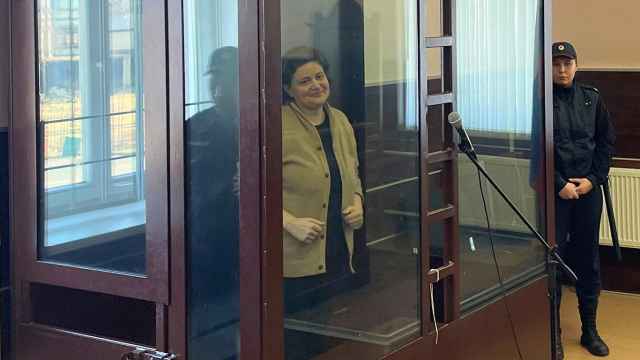British economists used to joke that the Russian consumer would find a popular Western brand, buy 10 items and then brag about it to their friends. But times have changed.
“The Russian consumer is now more demanding, more selective, more sophisticated,” Daniel Thorniley, president of DT Global Consulting, said at the Russia Forum on Wednesday. “They want to know why they should spend money on your products.”
Shoppers have become more educated — many have traveled abroad and have the Internet readily available for comparisons of prices and quality.
Retailers, in turn, are starting to adapt to the new customer that demands a higher level of goods.
X5 Retail Group, the country’s largest food retailer by sales, intensified quality control of their merchandise last fall by offering customers free items in exchange for items with expired freshness dates or of otherwise poor quality. In December, X5 and pollster ROMIR opened a research center to study customer preferences.
The consumer sector is expected to grow as the economy recovers from the financial crisis and the middle class grows. Analysts at the Russia Forum projected that in 12 to 13 years the consumer market, which is now at about 142 million, will be bigger than Germany’s, one of Europe’s largest.
The gross domestic product grew by 4 percent last year, according to the State Statistics Service.
Russians have more disposable income compared with their Western counterparts. Thorniley estimates that a mid-level executive in Texas who earns $60,000 a year has $7,000 left after taxes, credit card debts and mortgage payments. A mid-level executive in Russia earns $25,000 a year, but has $10,000 left because of low levels of consumer debt in the country.
Because of the relatively unstable ruble, Russians spend most of their disposable income rather than save it for something intangible in the future, said Filipp Lysenko, a consumer analyst for Financial Bridge Investment.
Strategic consultant Clive Woodger said he has seen phenomenal changes since he first came to Russia in 1998 with his consultant group SCG London.
“Before, anything Western was seen as good, but now the customer is less status-conscious,” Woodger said. “She is more traveled, understands what quality should be and demands it here,” Woodger said.
Because of the wide availability of the Internet, transparency has grown and businesses are forced to offer quality to be competitive, Woodger said.
“Our country is hungry. The level of demand is higher than what we can provide,” said Mikhail Kusnirovich, founder of the Bosco di Ciliegi chain of upmarket stores.
Ilya Belonovsky, executive director of ACORT Retail Companies Association, said there is a movement for quality fresh food in the food sector. Stores are moving to provide better food to the customer to stay competitive, Belonovsky said.
“The consumer is very smart, he’s not just a consumer, but an adviser,” he said.
According to Euromonitor Global Market Research, the number of households with annual disposable incomes between $5,000 and $15,000 have grown to 50 percent in Kazakhstan, Romania and Russia during the period between 2000 and 2010.
A Message from The Moscow Times:
Dear readers,
We are facing unprecedented challenges. Russia's Prosecutor General's Office has designated The Moscow Times as an "undesirable" organization, criminalizing our work and putting our staff at risk of prosecution. This follows our earlier unjust labeling as a "foreign agent."
These actions are direct attempts to silence independent journalism in Russia. The authorities claim our work "discredits the decisions of the Russian leadership." We see things differently: we strive to provide accurate, unbiased reporting on Russia.
We, the journalists of The Moscow Times, refuse to be silenced. But to continue our work, we need your help.
Your support, no matter how small, makes a world of difference. If you can, please support us monthly starting from just $2. It's quick to set up, and every contribution makes a significant impact.
By supporting The Moscow Times, you're defending open, independent journalism in the face of repression. Thank you for standing with us.
Remind me later.






